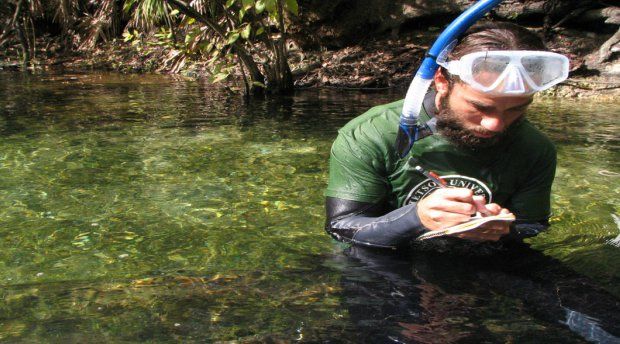Do You Want to Become a Marine Biologist?
Post Views 1Summary: Becoming a marine biologist is an ideal career for those that enjoy the combination of scientific research, studying marine life, and the outdoors.
A career as a marine biologist focuses on adventurous fieldwork, applying scientific principles, and studying organisms in their natural habitat. The actual job description of a marine biologist is someone who is responsible for understanding marine life by examining the division, abundance, and life histories of animals and plants in the sea, and how environmental aspects govern these features.
First attain a Bachelor of Science degree in marine biology or another related field such as biology, ecology, zoology, microbiology, or biochemistry. This should allow you to gain an entry-level position. Some employers may require a Master’s degree in marine biology for applied research positions. If you are more interested in university teaching and research, a PhD in marine biology is required. Marine biologists are also required to attend continuing education courses throughout their career. This allows them to keep their knowledge up to date with advancements in the field.
The United States Bureau of Labor Statistics reports the median salary of a marine biologist as $57,430. Someone with significant experience and advanced degrees can expect to earn around $100,000. Marine biologists generally work for university research laboratories, private companies, aquariums, zoos, eco-tourism companies, and non-profit environmental advocacy organizations. The options and availability will depend on the location of where you live, with the coasts having the most jobs. Marine biologists will work in a variety of environments including offices, classrooms, laboratories, and outside in nature.
The kind of person that becomes a marine biologist is curious about different forms of marine life. They are interested in scientific research and are able to apply logic and reasoning to solve questions. They are attentive to detail and very organized.
The employment rate for biological scientists is expected to grow 21 percent from 2008 to 2018, whereas the rate for marine biologists is expected to grow at a much slower rate. There is high competition for the “dream” jobs that involve working with dolphins and whales.
Photo: stetson.edu
Do You Want to Become a Marine Biologist? by Amanda Griffin



 What to Do If You Have No Experience Working in an Office
What to Do If You Have No Experience Working in an Office  Which Celebrities are Police Officers on the Side?
Which Celebrities are Police Officers on the Side?  7 Things You Need to Know When Switching Jobs
7 Things You Need to Know When Switching Jobs  How to Get Started on a Career in Nutrition
How to Get Started on a Career in Nutrition  Seven Perfect Careers for Perfectionists
Seven Perfect Careers for Perfectionists  An In-depth Review of the Computer Industry and Computer Hardware Jobs
An In-depth Review of the Computer Industry and Computer Hardware Jobs  How to Find Out What You Want to Do Without Having Done it Before
How to Find Out What You Want to Do Without Having Done it Before  10 Books to Read When Changing Careers
10 Books to Read When Changing Careers